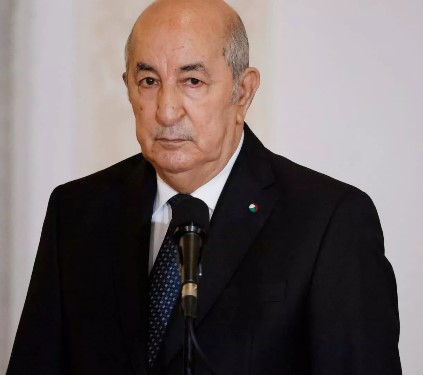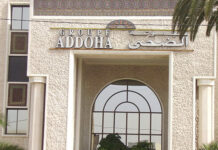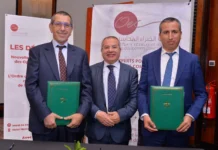The re-election of Abdelmadjid Tebboune in 2024 deepens the challenges Morocco faces in its relations with Algeria. Rabat might have hoped for a shift in tone from its neighbor, but it is now evident that the status quo—or perhaps even escalating tensions—will dominate Tebboune’s second term. Morocco will need to continue deftly navigating between Algerian provocations and its own efforts to bolster international diplomatic stability.
However, this re-election could also present Morocco with an opportunity. By strengthening its role as a regional leader in North Africa, Morocco could position itself as a champion of dialogue and development, in contrast to Algeria’s image of crisis and isolation. Ultimately, Tebboune’s victory is less a political triumph and more an admission of weakness, a vulnerability that could shape future relations between the two nations.
On September 8, 2024, Abdelmadjid Tebboune was re-elected as Algeria’s president with a staggering 95% of the vote—an outcome that surprised no one. Yet behind this predictable result lies a grimmer reality, revealing a political system resistant to change and suggesting a rigid diplomatic future for Morocco. Although this election symbolizes Algeria’s political stagnation, it also signals a looming persistence, or even worsening, of tensions with its neighbor to the west.
Tebboune’s first term was marked by authoritarian domestic policies and a break in diplomatic relations with Morocco. His second term offers little hope for a change in direction. On the contrary, his re-election suggests a continuation of a hostile foreign policy toward Rabat, amplified by Algeria’s unwavering support for the Polisario Front. This focus on the Moroccan Sahara, now central to Algerian diplomacy, only intensifies the geopolitical rivalry between the two nations.
For Morocco, Tebboune’s re-election closes the door on any short-term hope of normalizing relations. Despite Morocco’s patience and diplomatic restraint, hoping for a shift in Algerian attitudes, this electoral outcome demonstrates that Algiers is committed to its confrontational strategy. This rivalry is not merely a regional dispute but could deepen under Tebboune’s leadership, affecting key areas such as security, trade, and regional cooperation.
Algeria struggling with internal crises
Tebboune’s regime faces a deep internal crisis. Algeria is grappling with major economic difficulties, exacerbated by overreliance on oil revenues, high youth unemployment, shortages of essential goods, mismanagement of agriculture and water resources, and runaway inflation. These challenges limit the president’s ability to implement meaningful economic and social reforms. In this context, maintaining a nationalist and anti-Moroccan rhetoric serves as a distraction for the Algerian public, diverting attention from domestic failures.
For Morocco, this situation is both a risk and an opportunity. A weakened neighbor might resort to more aggressive stances to preserve national unity, notably by continuing diplomatic maneuvers against Rabat in international forums. However, Algeria’s growing isolation on the global stage, where it is increasingly seen as a destabilizing force, could work in Morocco’s favor. By positioning itself as a stable and cooperative player in Africa and the Arab world, Morocco continues to bolster its global standing, particularly in economic and security diplomacy.
An uncertain future for the Maghreb
Beyond the strained relationship between Rabat and Algiers, Tebboune’s re-election has broader implications for the entire Maghreb region. The ongoing tension between these two regional powers hinders any hope of regional integration. The Arab Maghreb Union, once seen as a path toward economic development and regional stability, remains a failed project, largely due to the antagonism between Morocco and Algeria.
This deadlock is all the more critical as the Arab world faces common challenges such as security, climate change, and economic transformation. Tebboune’s re-election could further diminish any chances of cooperation between Rabat and Algiers, undermining efforts toward regional unity. This lack of collaboration also stifles intra-regional trade and prevents the development of joint policies to address transnational threats like terrorism.
Mohamed Mounadi





